Words MAXMILIAN WECHSLER
| • A nine-day crackdown ordered by Pol Gen Wuthi in Pattaya last November resulted in the arrest of 200 people and seizure of 142 guns, 150 rounds of ammunition, 630,000 methamphetamine tablets and 80 grams of crystal methamphetamine. • Owners and proprietors of hotels, resorts, motels, guesthouses, condominiums and houses now have to report to the local police station within 24 hours from the time a foreigner takes up residence, even if just for a day. |
PROUDLY wearing the four stars on his shoulders that signify the second highest position at the Royal Thai Police (RTP), Dr Wuthi Liptapallop is the Police General in charge of a new initiative designed to address a host of international issues and developments that directly affect the capabilities of the RTP to enforce the law in Thailand. They include terrorism, serious crimes committed by foreigners, illegal migration, drugs trafficking and the sexual exploitation of children.
The police chief is additionally overseeing a new computer software system that will cause considerable concern among international criminals as it can link almost instantaneously into the Interpol database dealing with fake passports or stolen passports.
It’s a tough assignment for Pol Gen Wuthi, but he readily admits that in his 33-year career he’s made a habit of working almost non-stop for long stretches, not even taking time off on holidays and weekends for his favourite but much neglected pastimes of tennis and golf. There will be a plenty of time for that in a couple of years when he reaches the compulsory retirement age of 60.
“My parents always wanted one of their five sons to be a policeman, and I was more or less chosen to be the one. However, I must admit that when I was young I didn’t really like the idea too much. My dream was to be another kind of a public servant, maybe a provincial governor,” he said.
The police chief is additionally overseeing a new computer software system that will cause considerable concern among international criminals as it can link almost instantaneously into the Interpol database dealing with fake passports or stolen passports.
It’s a tough assignment for Pol Gen Wuthi, but he readily admits that in his 33-year career he’s made a habit of working almost non-stop for long stretches, not even taking time off on holidays and weekends for his favourite but much neglected pastimes of tennis and golf. There will be a plenty of time for that in a couple of years when he reaches the compulsory retirement age of 60.
“My parents always wanted one of their five sons to be a policeman, and I was more or less chosen to be the one. However, I must admit that when I was young I didn’t really like the idea too much. My dream was to be another kind of a public servant, maybe a provincial governor,” he said.
| A colleague of Pol Gen Wuthi who has known him since he was commander of the Tourist Police in 1999 said he had worked up to his current rank and position because of his abilities, determination and strong work ethic. “Don’t be misled by the polite, friendly smile. He really is a nice guy, but when he’s involved in an investigation he is uncompromising, with clearly defined priorities. He won’t rest until the job is done and his target is behind bars,” said the officer. |
In the last couple of decades his rise in the RTP has been rapid, but when he joined the force in 1983 Pol Gen Wuthi was assigned to an administrative job at police headquarters in Bangkok. That’s where he stayed until 1997, the year the Thai economy crashed and the government began to place more emphasis on tourism to bring foreign exchange into the country. Pol Gen Wuthi was selected for active duty as commander of the Tourist Police. Assignments since leaving that post in 1999 include deputy commissioner of Central Investigation Bureau (2004), commissioner of the Narcotics Suppression Bureau (2007) and commissioner of the Immigration Bureau (2009).
These assignments gave Pol Gen Wuthi a lot of experience in combating serious crimes such as robbery, narcotics, human trafficking, murder and rape, as well as “white collar” crimes such as cyber crime, money laundering, tax and documents fraud and the exploitation of national resources.
Despite his high rank and positions, Pol Gen Wuthi is seldom found behind the desk. He prefers to actively participate with frontline police teams in the prevention and suppression of crime. Over the years a large number of the cases he’s handled have involved foreign nationals, and he has personally directed some important busts involving foreigners. This makes him well qualified to head a new RTP initiative known as the Foreign Affairs Function (FAF).
Pol Gen Wuthi explained the primary reason the FAF was established: “At present we face many security threats that involve foreign elements, including terrorist incidents like the Ratchaprasong bombing, human trafficking involving Rohingya from Myanmar, and other serious transnational crimes.”
His responsibilities in the new endeavor are four-fold. “The first responsibility is addressing growing security threats that involve foreign elements. The second area is overall tourist security; the third is preparation for the ASEAN Community (AC) implementation; and the fourth is the ASEAN Highway Network Project.
“Thailand is one of 190 Interpol member nations and there are many police liaison units from all over the world stationed and working inside the country. The RTP closely cooperates and coordinates with these units in many areas including transnational crime investigations and executing arrest warrants, or ‘red notices’ issued by Interpol.
“We are very involved with cases concerning passport fraud. In recent weeks I have met with ambassadors of the Russian Federation, United Kingdom and United States. I also meet very often with officials of police liaison units who may provide valuable information on new and old cases,” said Pol Gen Wuthi
These assignments gave Pol Gen Wuthi a lot of experience in combating serious crimes such as robbery, narcotics, human trafficking, murder and rape, as well as “white collar” crimes such as cyber crime, money laundering, tax and documents fraud and the exploitation of national resources.
Despite his high rank and positions, Pol Gen Wuthi is seldom found behind the desk. He prefers to actively participate with frontline police teams in the prevention and suppression of crime. Over the years a large number of the cases he’s handled have involved foreign nationals, and he has personally directed some important busts involving foreigners. This makes him well qualified to head a new RTP initiative known as the Foreign Affairs Function (FAF).
Pol Gen Wuthi explained the primary reason the FAF was established: “At present we face many security threats that involve foreign elements, including terrorist incidents like the Ratchaprasong bombing, human trafficking involving Rohingya from Myanmar, and other serious transnational crimes.”
His responsibilities in the new endeavor are four-fold. “The first responsibility is addressing growing security threats that involve foreign elements. The second area is overall tourist security; the third is preparation for the ASEAN Community (AC) implementation; and the fourth is the ASEAN Highway Network Project.
“Thailand is one of 190 Interpol member nations and there are many police liaison units from all over the world stationed and working inside the country. The RTP closely cooperates and coordinates with these units in many areas including transnational crime investigations and executing arrest warrants, or ‘red notices’ issued by Interpol.
“We are very involved with cases concerning passport fraud. In recent weeks I have met with ambassadors of the Russian Federation, United Kingdom and United States. I also meet very often with officials of police liaison units who may provide valuable information on new and old cases,” said Pol Gen Wuthi
Unwelcome visitors
“Serious crimes currently committed by foreigners in Thailand can be divided into many categories. Illegal migration is a very big problem, as are narcotics and human trafficking. We are improving our capabilities to detect documents fraud and this is an area we are really cracking down on. Fake passports are a big problem, and contributing to this are stolen passports and false claims of lost or stolen passports. A high percentage of foreigners entering Thailand with the intent to commit crimes carry fake or lost and stolen passports,” Pol Gen Wuthi said.
Asked which foreign nationals are committing the most crimes in Thailand, he replied: “Presently we worry a lot about people from West Africa, mostly involving narcotics. West Africans are also doing ‘romance scams’ – meaning cheating and lying to a lady using social media. Another crime that has been perpetrated for many years is the ‘black money’ or ‘black dollar’ scam.”
Pol Gen Wuthi acknowledged that in spite of numerous police raids over the years, West Africans continue to deal narcotics on a narrow lane off Sukhumvit Soi 3 dubbed ‘Soi Africa.’ “They [the West Africans] come and go, but the problem remains.
“The two crimes committed by foreigners that are most damaging to the reputation of the Kingdom are drugs trafficking and the sexual exploitation of children,” he added.
ASEAN Community bringing change to RTP
Thai police are “100 percent ready” for the AC, which was officially launched on January 1 this year, said Pol Gen Wuthi. “We have four strategies initiated to deal with the changes mandated by the ASEAN Charter. One concerns crime suppression; the second is aimed at providing security for tourists and investors, especially those with projects approved by the Board of Investment; the third strategy deals with border management; and the fourth is designed to improve the overall function of the RTP with respect to the AC.
“This means, for example, encouraging police to improve themselves and acquire more knowledge and skills, particularly English language skills, so we can communicate more effectively with foreigners.
“Article 34 of the ASEAN Charter states: ‘The working language of ASEAN shall be English.’ Therefore, our goal is for all the 230,000 men and women in the RTP to be able to communicate in English. It is particularly important that RTP officers stationed in tourist areas, border provinces and special economic zones have a good level of English proficiency, and I have directed all superintendents in these areas to spare no effort in making this come about. We are also working to develop our officers’ understanding of globalization and important international issues and events, and focusing on improving police stations and police forces along ASEAN Highway routes.”
“Serious crimes currently committed by foreigners in Thailand can be divided into many categories. Illegal migration is a very big problem, as are narcotics and human trafficking. We are improving our capabilities to detect documents fraud and this is an area we are really cracking down on. Fake passports are a big problem, and contributing to this are stolen passports and false claims of lost or stolen passports. A high percentage of foreigners entering Thailand with the intent to commit crimes carry fake or lost and stolen passports,” Pol Gen Wuthi said.
Asked which foreign nationals are committing the most crimes in Thailand, he replied: “Presently we worry a lot about people from West Africa, mostly involving narcotics. West Africans are also doing ‘romance scams’ – meaning cheating and lying to a lady using social media. Another crime that has been perpetrated for many years is the ‘black money’ or ‘black dollar’ scam.”
Pol Gen Wuthi acknowledged that in spite of numerous police raids over the years, West Africans continue to deal narcotics on a narrow lane off Sukhumvit Soi 3 dubbed ‘Soi Africa.’ “They [the West Africans] come and go, but the problem remains.
“The two crimes committed by foreigners that are most damaging to the reputation of the Kingdom are drugs trafficking and the sexual exploitation of children,” he added.
ASEAN Community bringing change to RTP
Thai police are “100 percent ready” for the AC, which was officially launched on January 1 this year, said Pol Gen Wuthi. “We have four strategies initiated to deal with the changes mandated by the ASEAN Charter. One concerns crime suppression; the second is aimed at providing security for tourists and investors, especially those with projects approved by the Board of Investment; the third strategy deals with border management; and the fourth is designed to improve the overall function of the RTP with respect to the AC.
“This means, for example, encouraging police to improve themselves and acquire more knowledge and skills, particularly English language skills, so we can communicate more effectively with foreigners.
“Article 34 of the ASEAN Charter states: ‘The working language of ASEAN shall be English.’ Therefore, our goal is for all the 230,000 men and women in the RTP to be able to communicate in English. It is particularly important that RTP officers stationed in tourist areas, border provinces and special economic zones have a good level of English proficiency, and I have directed all superintendents in these areas to spare no effort in making this come about. We are also working to develop our officers’ understanding of globalization and important international issues and events, and focusing on improving police stations and police forces along ASEAN Highway routes.”
Keeping tabs on foreigners
“I am the Director of the AC Preparation Centre, opened on the 19th floor of RTP headquarters in July 2015. The centre can monitor the routeway and movement of tourists during their stay in Thailand, for example when they arrive, where they go and stay, and when they depart Thailand. I expect that with the establishment of the AC more criminals from ASEAN countries will come here along with more tourists and legal immigrants. This is a normal occurrence anywhere in the world when borders are opened up.
“We are relying on a biometric recognition system to help us screen for undesirables. It was my idea to install this technology in Thailand and, in fact, it would already be up and running had there not been budget constraints in the past year. We hope that the system will be fully operational at all border crossings this year.
“We are also employing computer software to deal with foreigners who come here to commit crimes. The Immigration Bureau has a program called Personal Identification and Blacklist Immigration Control System, or PIBICS. This software can determine the validity of every passport used to enter and depart Thailand. This system will really help in dealing with the problem of fake or stolen passports, which can be used to commit crimes and obtain bogus credit cards. Every year over 40 million passports are reported lost or stolen around the world and every day on average more than 100 foreigners carrying such passports enter Thailand.
“The PIBICS system is linked to the Interpol database under Interpol’s Global Police Communications System I-24/7, so when you use your passport at an Immigration checkpoint at the airport or a border crossing the information will be sent to Interpol headquarters in France and a report will be sent back to the Immigration officer in just a little over one second. So we will know almost immediately if someone is trying to use a passport that is a fake or has been reported lost or stolen. Other relevant information is also transmitted through the system. This is a very important step forward that just recently became operational in Thailand.

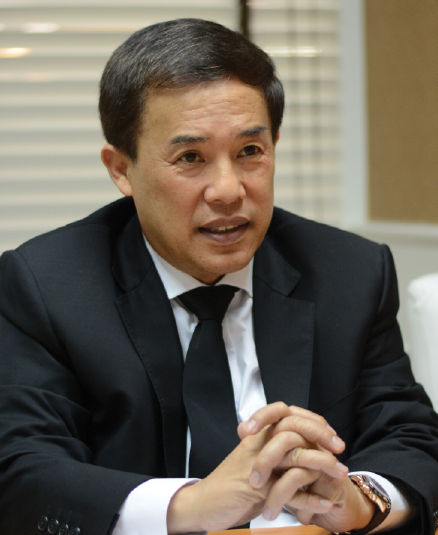
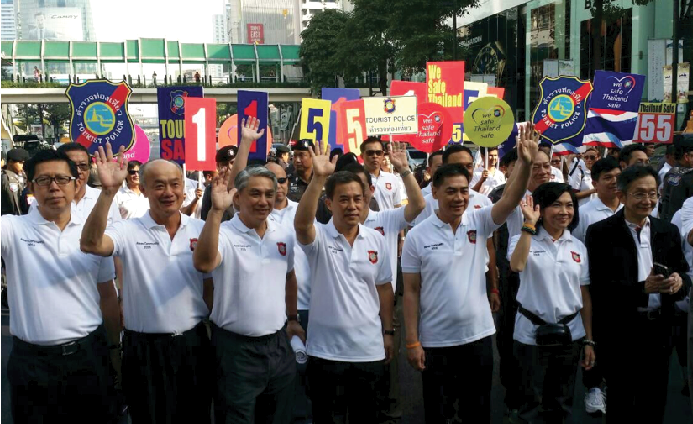
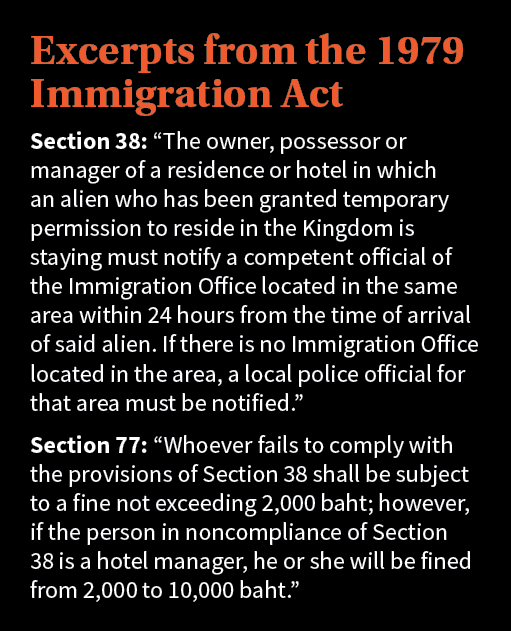
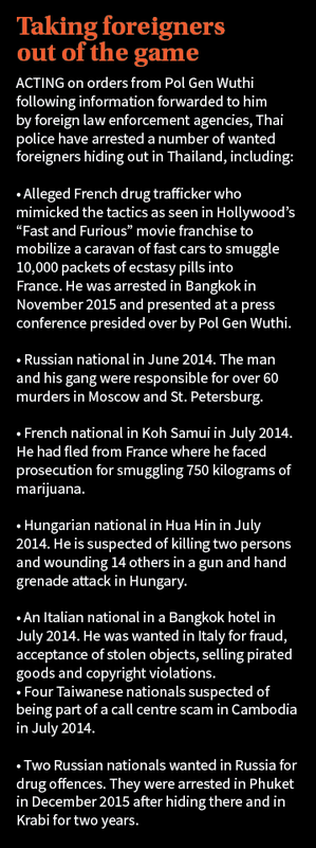
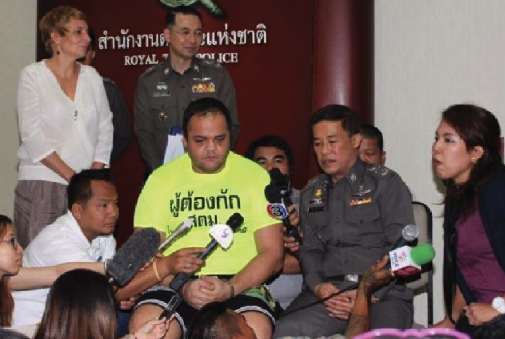
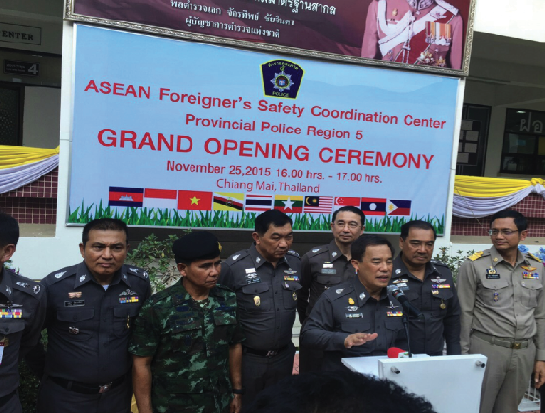
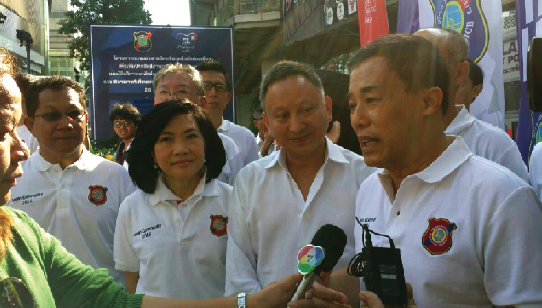
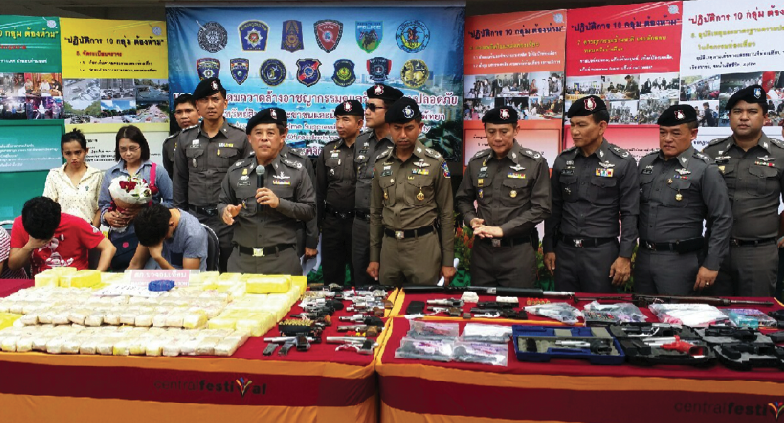
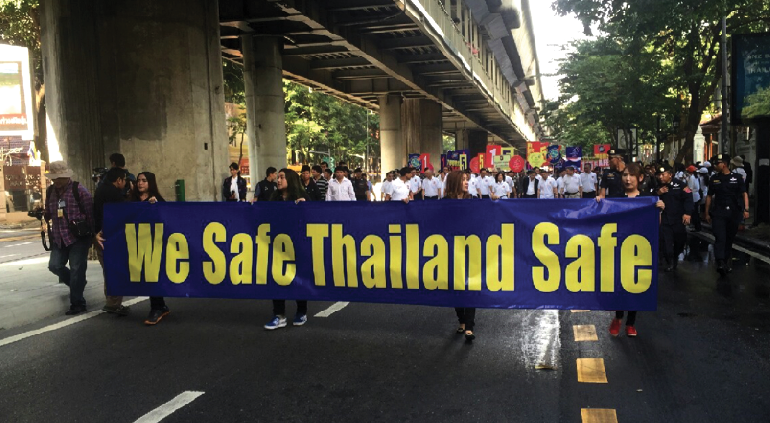
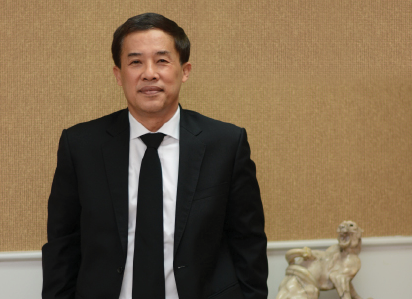
 RSS Feed
RSS Feed
















